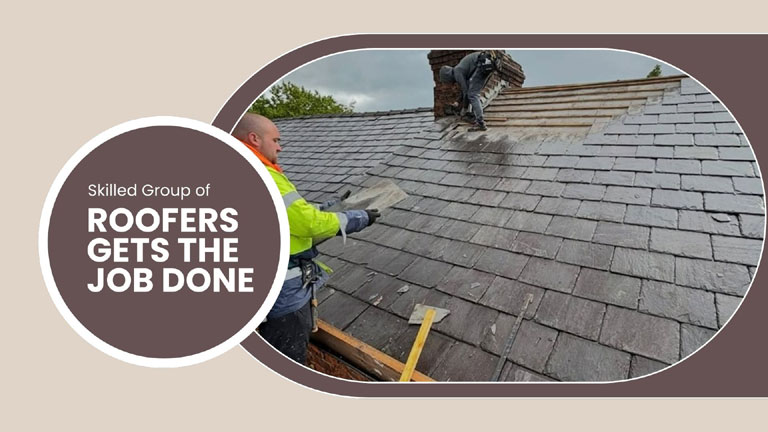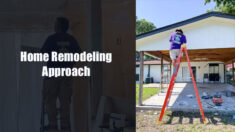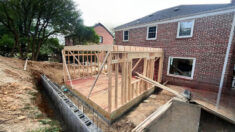
A skilled group of roofers gets the job done right through a combination of technical expertise. They know the proper technique, licensed and insured roofers, use high-quality materials, have effective communication, and focus on safety.
But before you begin dialing a roofer’s number, let’s go over what you really need to know about hiring a team of roofers, whether you are dealing with a little leak or a big “my roof is attempting to turn into a skylight” situation.
1. The dangers of the “quick patch.”
One of the most common errors that homeowners make is fixing a problem themselves.
A little bit of silicone here, and a piece of flashing there, it’s equivalent to putting a Band-Aid on a broken bone. Yes, it looks “repaired” for the time being. But wait until one big storm comes, and the leak’s back… this time even worse, because water can have been accumulating inside your roof space unbeknownst to you.
What is the price of repairing water damage in walls or ceilings? Much higher than the initial repair.
2. What you should ask before they start
Hiring roofers isn’t just about finding someone with a ladder and a ute. Ask:
- Experience with your roof type. Metal, tile, slate — each has its own quirks.
- Licences and insurance. You don’t want to be liable if someone takes a tumble.
- Photos before and after. A good crew documents their work.
- Material choices. Are they using something long-lasting, or whatever’s on hand?
A quality roofer will happily walk you through their plan without drowning you in jargon.
3. How they work together matters
In a good group, you’ll notice two things: communication and rhythm.
One person measures. Another prep tool. Another install. They talk constantly, not because they are chatty, but because safety depends on it.
I had an example of that at Balmain the other day. The crew stopped work in the middle when they discovered a piece of rotten timber behind the tiles. Rather than patch it up and continue, they summoned the owner, explained the hazard, and remedied it on the spot. That’s the sort of teamwork you desire – fast judgments, easy explanations.
4. Timing is everything
With roof repairs, timing isn’t everything; it’s also about the weather. Rainy weather repairs are hazardous and inefficient. The best group of roofers schedules work into clear windows of weather. In the summer, that’s starting early, so the heat doesn’t make the roof a frying pan. In the winter, it may be holding out for a dry spell so that materials bond properly. If a crew says they can work “anytime, no problem” and doesn’t even look at the weather.
5. Warning signs you have hired the wrong team
- They rush the quote. If they don’t even get up on the roof, how can they know what’s wrong?
- They can’t explain the fix. Vague answers often mean vague workmanship.
- They leave a mess. Roofing is dirty work, but pros leave the site safe and tidy.
- They dodge questions about guarantees. Even small repairs should have a warranty period.
6. Cost vs. value
You’re tempted to take the lowest price, particularly if you’ve got a bunch of other reno projects sucking up your cash. But with roofing, you tend to get what you pay for.
That doesn’t mean the highest-priced crew is always going to be the best, just that you need to look at what’s included. Are they reinstalling damaged underlayment? Employing good sealants? Cleaning gutters while they’re on the roof?
A little more money up front for improved materials and craftsmanship will pay thousands in the end.
8. Why locals recommend local crews
There’s merit in keeping it local and employing people who work in your neighborhood all the time.
Local roofers know the best suppliers to use, which inspectors are finicky about heritage requirements, and even which streets are hardest to navigate with scaffolding.
And if ever there’s a problem, they are not three hours down the road.
8. The takeaway for homeowners
If your roof is leaking, sagging, or losing tiles like they are autumn leaves, don’t wait for it to worsen.
Look for a competent team of roofers who are familiar with your roof style, your suburb’s climate, and the best time to fix it. Ask questions, observe how they work together, and prioritize quality over speed.


